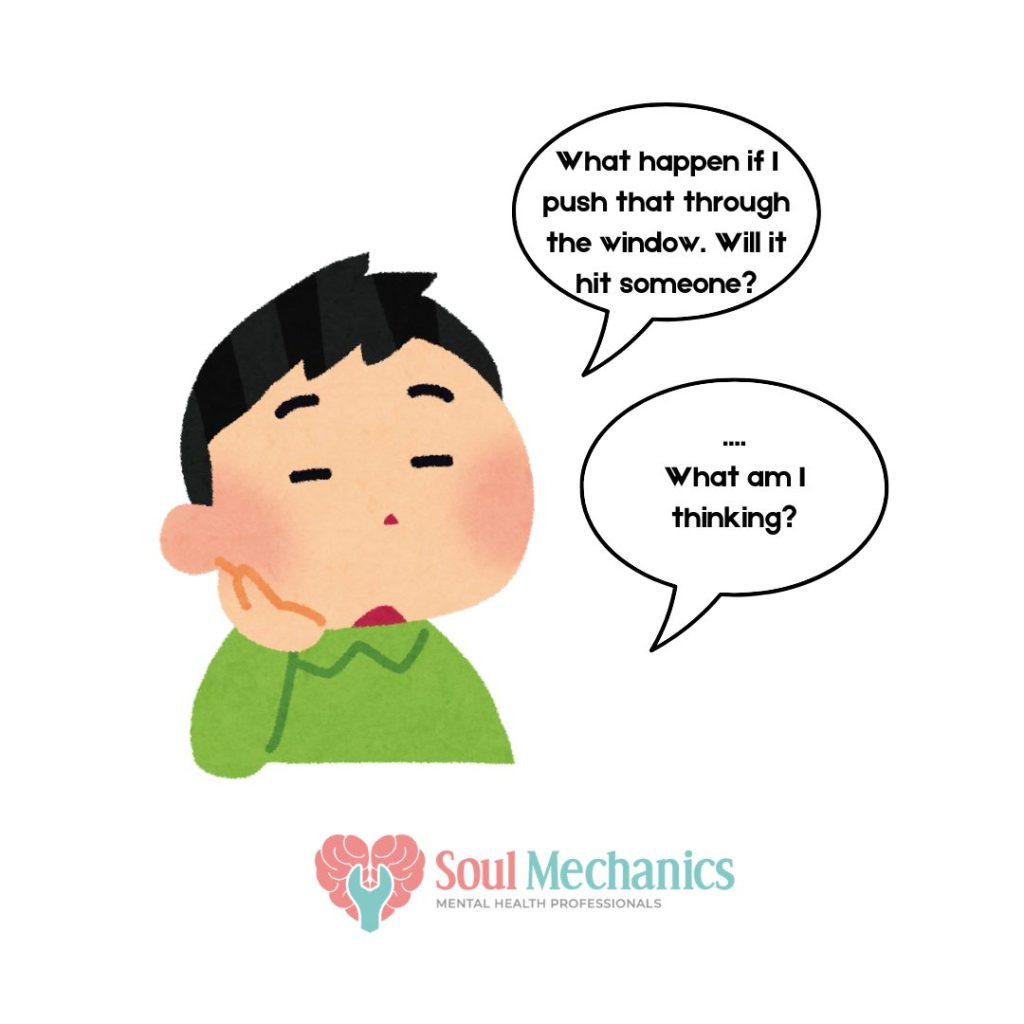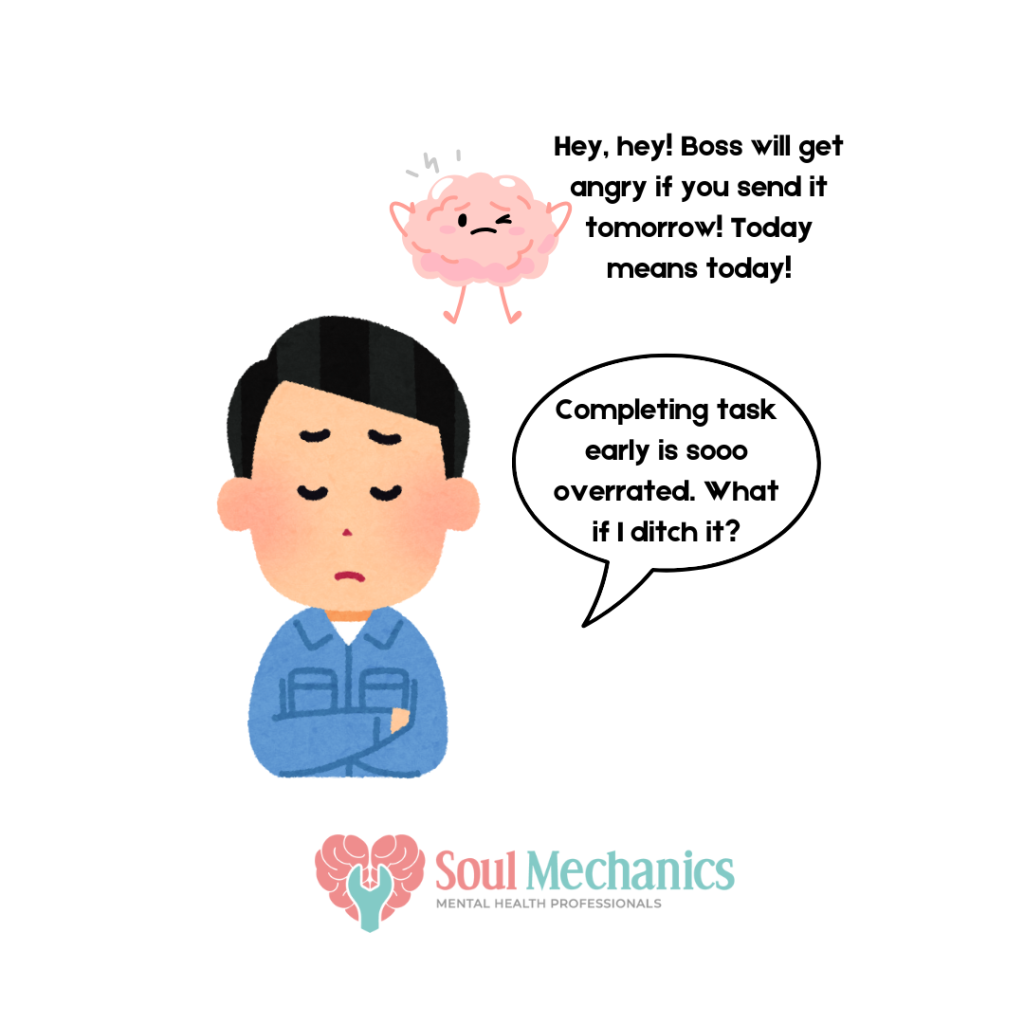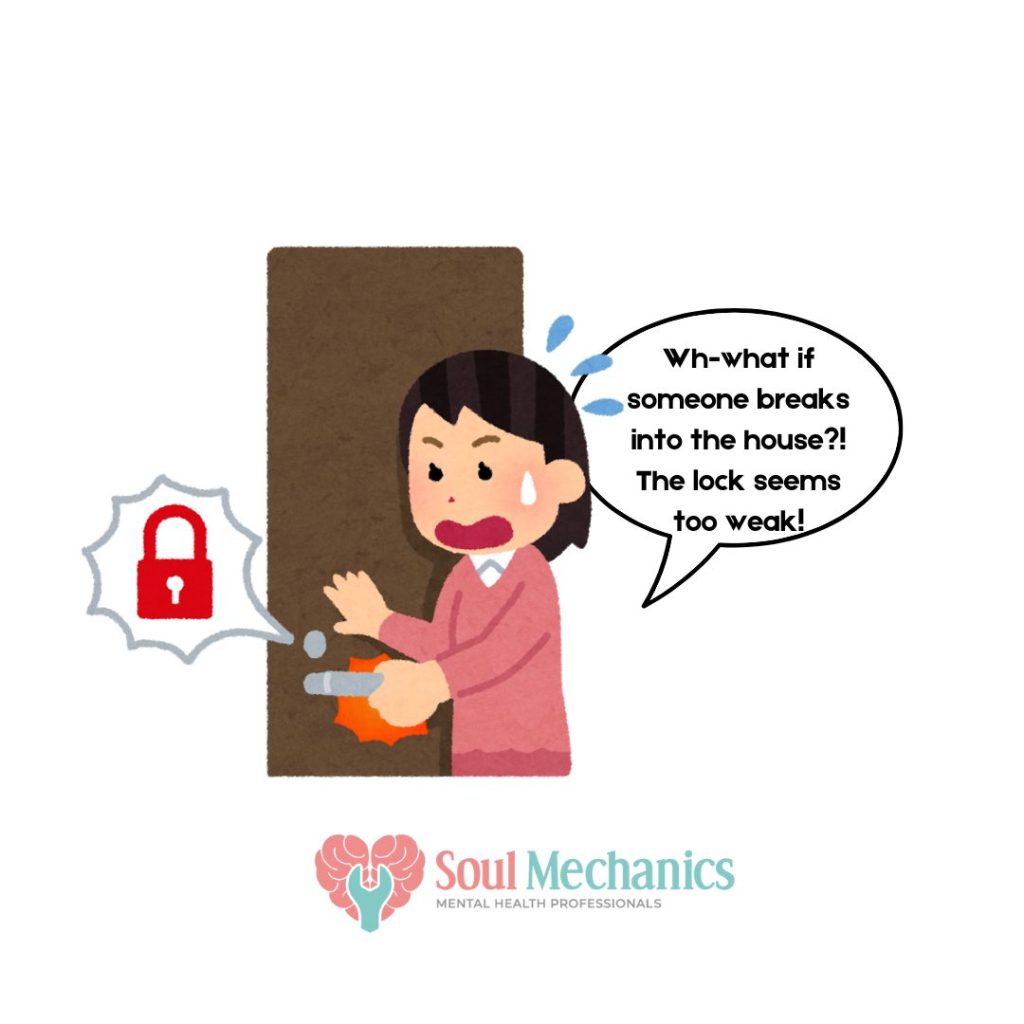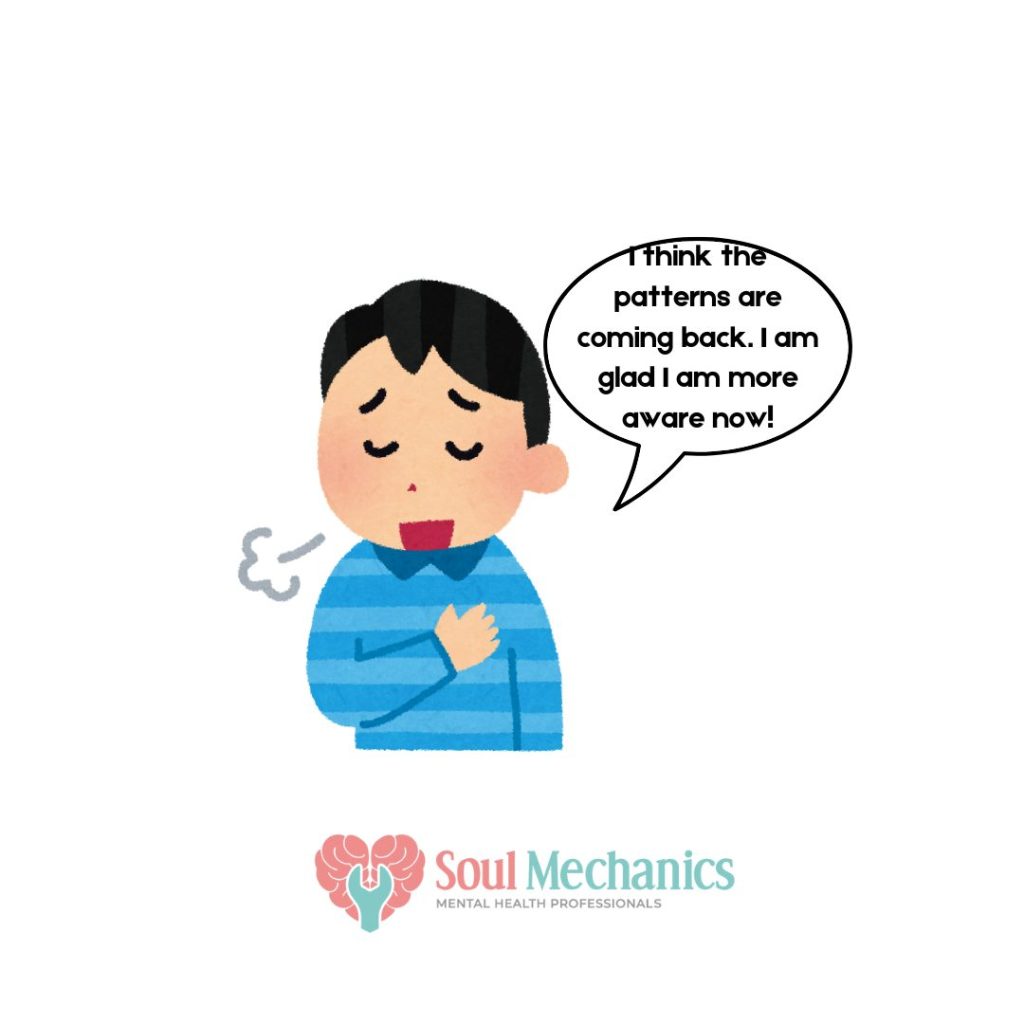The Mind’s Unwanted Visitors: Decoding Intrusive Thoughts
The Mind’s Unwanted Visitors: Decoding Intrusive Thoughts

Written by: Jenefa Anthony, Licensed Counselor (KB 11780)

Have you ever had a random, unsettling thought pop into your head out of nowhere? Maybe it was something shocking, like imagining yourself yelling at a loved one, or strange, like wondering what would happen if you just walked out of your job. If this has happened to you, you’re not alone. These are called intrusive thoughts, and they’re a natural part of being human, even though they can feel deeply upsetting.
Intrusive thoughts are sudden, unwanted ideas, images, or urges that seem to appear out of thin air. They often leave us questioning ourselves: “Why would I think that?” or “Does this mean something is wrong with me?” The short answer is no. Having intrusive thoughts doesn’t define you or your character. They’re simply a quirk of how our brains process information.
What Are Intrusive Thoughts?
Intrusive thoughts are those “out of the blue” ideas that feel strange, uncomfortable, or even alarming. They can include anything from imagining saying something offensive in a meeting to worrying about harming someone you love.

What makes them so unsettling is how out of character they feel. You might think, “I would never do that, so why did I even think it?” But here’s the thing: these thoughts don’t reflect your true self. Intrusive thoughts often bother us because they clash so strongly with our values and who we are as people.
Why Do Intrusive Thoughts Happen?
If you’ve ever wondered why these random thoughts show up, the answer lies in how our brains work. The mind is constantly processing information, scanning for threats, and juggling our emotions, which sometimes leads to thoughts that seem unrelated to what we’re doing. Here’s what’s going on behind the scenes:

Overactive Threat Detection
Our brains are wired to keep us safe, which means they’re constantly on the lookout for danger. But sometimes, this ‘alarm system’ overreacts. It might treat a harmless thought or situation as if it’s a big threat. For example, you might have a fleeting thought about messing up at work, and suddenly your brain is stuck analyzing every possible way it could go wrong.
Thought-Action Fusion
Some people have a tendency called thought-action fusion, where they confuse thinking about something with actually doing it. For example, you might imagine accidentally harming someone and feel as though the thought alone makes you capable of doing it. This can make the thought seem more serious or dangerous than it is.
Perfectionism and High Standards
If you’re someone who holds yourself to high standards or tends to overthink, you might be more prone to intrusive thoughts. People who strive for perfection often feel a lot of pressure always to do the ‘right’ thing. So, when a random thought doesn’t align with those values, it can feel especially distressing. You might even start to feel guilty, wondering if having the thought means something about who you are (it doesn’t).

What’s Happening in Your Brain?
Intrusive thoughts don’t just come from nowhere. A lot is happening in the brain that explains why they show up and why they sometimes linger.

The Brain’s Alarm and Control Centers
The amygdala, the part of your brain responsible for processing fear and strong emotions, plays a big role here. If it overreacts to a thought, it can send a ‘false alarm,’ making the thought feel more urgent than it is. Meanwhile, the prefrontal cortex, the part of your brain that handles logic and self-control, might struggle to quiet that alarm, leaving the thought stuck in your mind.
Chemical Imbalances
Neurotransmitters like serotonin and dopamine help regulate how we process thoughts and emotions. If these chemicals are out of balance, due to stress, anxiety, or conditions like OCD, it can make intrusive thoughts more frequent or intense.
Daydreaming Gone Awry
When your brain is at rest or wandering, the default mode network (DMN) kicks in. This system is great for creativity and problem-solving, but sometimes it goes into overdrive, leading to rumination. Instead of letting a thought drift away, the DMN keeps pulling it back, making it feel like you’re stuck in a mental loop.

How do Intrusive Thoughts Affect Daily Life?
Everyone has intrusive thoughts, but for some people, they can start to interfere with daily functioning. Here are a few ways they might show up:

Work or School
Intrusive thoughts can make it hard to focus, especially if you find yourself obsessing over them. You might procrastinate or fall behind because your mind is preoccupied with trying to ‘solve’ or make sense of the thought.
Relationships
These thoughts can create feelings of guilt or insecurity, especially in close relationships. For instance, you might constantly question whether you’re a good partner, parent, or friend based on intrusive thoughts, which can lead to unnecessary conflict or emotional withdrawal.
Compulsions
In some cases, intrusive thoughts lead to compulsive behaviours. For example, someone who worries about leaving the stove on might check it repeatedly. These rituals might provide temporary relief, but they often strengthen the cycle, making the thoughts feel more powerful.

Avoidance
Sometimes people try to avoid situations that might trigger intrusive thoughts. For example, someone who fears germs might avoid public places, or someone with intrusive thoughts about driving might stop getting behind the wheel. While avoidance can feel like a quick fix, it often reinforces the fear, making it harder to confront over time.
How to Manage Intrusive Thoughts?
While intrusive thoughts can feel overwhelming, they’re not impossible to manage. Here are some strategies to help:

Recognize and Reframe
It is crucial to remember that intrusive thoughts are just thoughts, not facts. Your identity and aspirations are not determined by them. Try to reframe them as harmless brain ‘chatter’ instead of treating them as significant.
Practice Mindfulness
Mindfulness helps you observe your thoughts without judgment. Instead of trying to fight or suppress them, acknowledge them and let them pass naturally. Imagine your thoughts as leaves floating down a stream, notice them, but don’t hold on to them.
Be Kind to Yourself
Intrusive thoughts are not your fault. They don’t make you a bad person, and they’re not a reflection of your character. Treat yourself the same way you would a close friend to cultivate self-compassion.

Limit Reassurance-Seeking
It’s tempting to ask others for reassurance that everything is okay, but doing so too often can reinforce the idea that your thoughts are dangerous. Build confidence in yourself by focusing on what you know to be true about your values and actions.
How to Support Someone with Intrusive Thoughts
If someone you care about is struggling with intrusive thoughts, your understanding and empathy can make a big difference.

Listen Without Judgment
Let them talk about their thoughts without fear of being dismissed or criticized. Avoid saying things like, “Just don’t think about it,” which can minimize their experience.
Validate Their Feelings
Reassure them that intrusive thoughts are a common part of being human and don’t define who they are. A simple, “It’s okay to feel this way, it doesn’t mean anything bad about you,” can go a long way.
Encourage Professional Help
If intrusive thoughts are interfering with their daily life, gently suggest seeking therapy. A professional can provide tools and strategies to help them cope.

Final Thoughts

Intrusive thoughts are a normal part of life, but they don’t have to control it. By understanding their origins and using strategies like mindfulness and self-compassion, you can reduce their impact. And if they’re affecting your life in a big way, reaching out for therapy can provide the support and clarity you need.
If someone you know is dealing with intrusive thoughts, your kindness and encouragement can make all the difference. Remember, intrusive thoughts may intrude, but they don’t have to stay.
If you’re looking for a therapist in Kota Damansara or Ipoh area, you can click here for more information.
If you enjoyed reading this, why not broaden the horizon of knowledge by learning about "High-Functioning Depression Signs: When Success Feels Empty"? You can read the blog here.
For more content related to mental health do follow us on our official Instagram.

